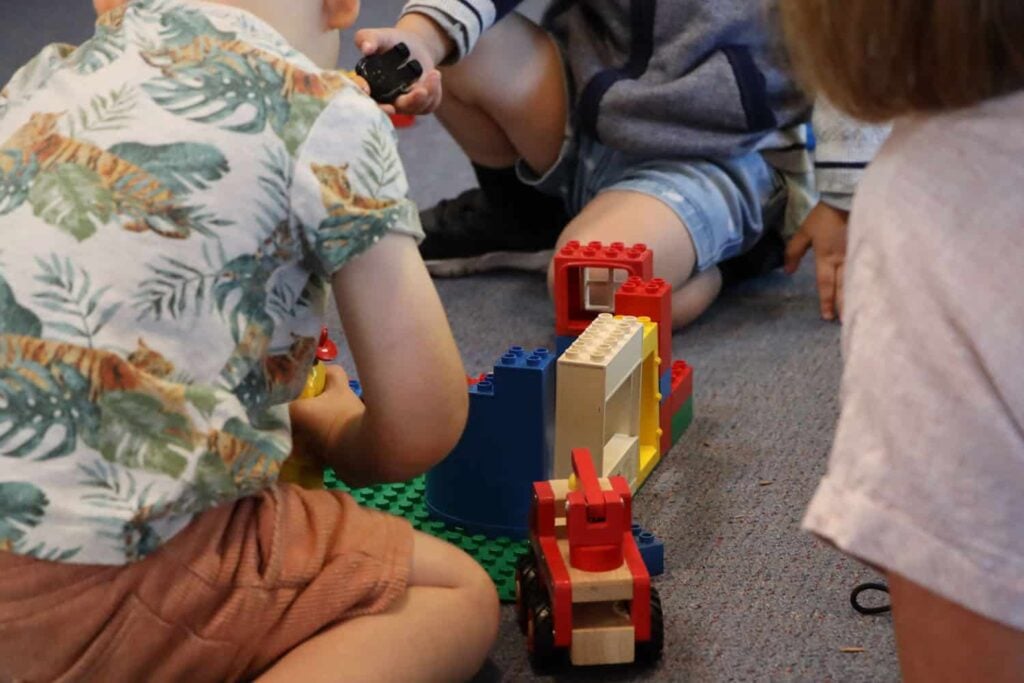Below are the titles and abstracts of articles published in the NZ-International Research in ECE Journal, 2018, Volme 21(1). To read any article a member login is needed – join us if you are not already a member. Many libraries subscribe to the journal so you may be able to view articles through your library’s system.
Order a copy of any article
Type in below the year, volume number and author(s) of the article you wish to order. The price per copy is NZ $19. Once you have completed your order it will emailed to you within 24 hours.
Original Research Paper
Early childhood educator perceptions of children’s physical activity and the outdoors
Llewellyn Wishart
Deakin University & University of New England, Australia
Abstract
The importance of young children’s physical activity, movement development and outdoor experience has been highlighted in recent years in the context of worldwide trends of sedentary living, reduced nature contact and risk minimisation. It is understood that early childhood educators can be influential in young children being physically active, outdoors and connected to the natural world. This paper explores early childhood educator perceptions of the importance of children’s movement development in naturalised outdoor learning environments. More specifically, this paper investigates how early childhood educators perceive the natural features outdoors influencing children’s movement development and physical activity. Six early childhood educators were interviewed as participants in a qualitative doctoral research study. The data were analysed and coded thematically using a perspective taking framework based on Wilber’s All Quadrants All Levels (AQAL) integral theory model (Esbjoèrn-Hargens, 2010; Wilber, 1998). An analysis of the results of the study revealed a spectrum of views of physical activity and the outdoors of lesser to greater complexity, highlighting differences in how educators’ perceive associations between children’s movement development, physical activity and outdoor environments
Key words: Movement development, physical activity, naturalised outdoor environments.
Full reference
Wishart, L. (2018). Early childhood educator perceptions of children’s physical activity and the outdoors. NZ International Research in Early Childhood Education Journal, 21(1), 1–16.
Original Research Paper
Can early years’ practitioners facilitate social development during conflicts between young children?
Nicola Watson
University of Worcester, UK
Abstract
This small-scale case study concerned the role of early years’ practitioners in managing conflict events between peers aged three to five in an early childhood setting in England. The setting is located in an area with a higher than average socio-economic status. The cohort which comprised the subject of the study reflected diverse ethnic and linguistic backgrounds. All children were culturally European and one child was bilingual. The study aimed to identify pedagogy which optimised children’s agency, thereby potentially, supporting the development of skills in the social domain. Accordingly, the focus of the study was on conflict management rather than its resolution. The pedagogical approach at the setting was informed by a social constructivist perspective and strategies drawn from alternative dispute resolution (ADR) practices typical of adult mediation services. The practitioner researcher’s professional background included both early years’ practice and ADR with adults. A principle of mediation is that the parties in conflict own and manage the process themselves whilst a mediator facilitates by optimising communication and managing power imbalances rather than directing or imposing judgment. Findings indicated that where practitioners used mediation strategies, (including non-intervention), children rehearsed social skills. In the majority of conflict events children were able to manage their conflicts without adult support. In every conflict event where adult support was given, children rehearsed social skills.
Key words: Social competence, conflict management, mediation strategies, cessation strategies, optimal intervention.
Full reference
Watson, N.. (2018). Can early years’ practitioners facilitate social development during conflicts between young children?. NZ International Research in Early Childhood Education Journal, 21(1), 17–34.
Original Research Paper
Where are the men in Jamaica’s early childhood classrooms? The experiences of those who choose to teach young children
Zoyah Kinkead-Clark
University of the West Indies, Jamaica
Abstract
With less than three percent of Jamaican teachers at the early childhood level being male, this study sought to understand some of the issues affecting men in the sector and to elicit the factors they believe prevent/ deter other men from joining them in the profession. Twenty-three males in the early childhood field participated in a focus group discussion. Using Denzin’s (2001) Interpretive Interactionist Framework to analyse the data for this qualitative study, three themes emerged from the findings: stigma, macho culture/ culture shift, and financial matters. These findings have implications for how men believe they are perceived in early childhood education. Men in the early childhood sector encounter significant challenges and they should be supported as they struggle to situate themselves and fight for acceptance and to be part of the sector.
Key words: Male teachers, men in childcare, gender, stereotype, Jamaica.
Full reference
Kinkead-Clark, Z. (2018). Where are the men in Jamaica’s early childhood classrooms? The experiences of those who choose to teach young children. NZ International Research in Early Childhood Education Journal, 21(1), 35 – 46.
Original Research Paper
Primary school entry assessment in NZ
John Boereboom
University of Canterbury, NZ
Helen Cramman
Durham University, UK
Abstract
There is a wide range of assessment tools used by schools to assess children at school entry in New Zealand. The lack of consistency of uptake and reporting of results leads to sporadic national data. This highlights a need for a national standardised assessment which can be used as a reliable baseline of what New Zealand children know when they start school and how they progress in their first year. The Performance Indicators in Primary Schools (PIPS) assessment is a valid, reliable and internationally respected school entry assessment. The Centre for Evaluation and Monitoring at the University of Canterbury used PIPS to collect data on 3916 students’ early literacy and numeracy skills when they started school and followed up on their progress 12 months later. This provides a useful baseline of the literacy and numeracy skills New Zealand children have when they start school. The data is useful for the early identification of special learning needs and can be used to gauge the effectiveness of year 1 programmes.
Key words: School entry assessment, PIPS, baseline data.
Full reference
Boereboom, J. & Cramman, H. (2018). Primary school entry assessment in New Zealand. NZ International Research in Early Childhood Education Journal, 21(1), 47 – 61.
Original Research Paper
Effective transition to school: Integrating philosophy, pedagogy and curriculum
Gillian Postlewaight
Eastern Institute of Technology, NZ
Abstract
Successful transition from early childhood settings to primary school involves a triadic process between children and their families and whānau, the early childhood setting and the school. This case study examines the self-review and subsequent commitment to philosophical and pedagogical changes within one primary school’s transition classrooms, undertaken to ensure the most effective outcomes for children at the school during their time of change and uncertainty. It offers an overview of the metamorphosis from reflecting on transition to a wider vision for growth and development. A focus on learning through play and discovery as a key value led the school to envisage a framework of possibilities for future school-wide reflection and self-review. Research of family and whānau experiences of transition to the school and/ or teacher reflections on their learning and transformation would offer relevant feedback to the self-review.
Key words: Transition, relationships, learning through play, continuity, communities of learning.
Full reference
Postlewaight, G. (2018). Effective transition to school: Integrating philosophy, pedagogy and curriculum. NZ International Research in Early Childhood Education Journal, 21(1), 62 – 75.
Original Research Paper
Delineating and reconciling various perspectives on quality in NZ early childhood services
Qilong Zhang
Toi Ohomai Institute of Technology, NZ
Abstract
In the context of evaluation of the quality of an early childhood service, tension can be created when internal stakeholders (e.g., manager, teachers, and parents) have a different perspective on what constitutes quality compared to an external evaluation authority. This study aims to delineate such perspectival differences and explore approaches to mediating the tensions. Data is comprised of individual interviews with 27 participants from nine early childhood services (one manager, one teacher, and one parent from each service) in a North Island city of New Zealand as well as the relevant Education Review Office documents. A combination of theoretical thematic analysis and deductive qualitative analysis captures three areas of difference in perspective between the sampled early childhood services and Education Review Office documents: level of compliance, appropriateness of practice, and robustness of evaluation. In an attempt to exemplify a multiple-lens approach to addressing the three areas of difference, three theoretical lenses are considered: the self-review framework, practical hermeneutics, and critical pragmatism.
Key words: Early childhood, quality, evaluation, multiple perspectives.
Full reference
Zhang, Q. (2018). Delineating and reconciling various perspectives on quality in New Zealand early childhood services. NZ International Research in Early Childhood Education Journal, 21(1), 76 – 87.
Original Research Paper
Preschool teachers’ and parents’ perspectives on primary school preparation in Singapore
Girlie S. Costales and Robyn Anderson
James Cook University, Singapore
Abstract
The study undertaken in Singapore sought to understand preschool teachers’ and parents’ views on school readiness with regard to primary 1 preparation to provide a common understanding on how to best prepare children for primary school. Nine preschool teachers and nineteen preschool parents completed a questionnaire and, of this group, four parents and four preschool teachers were also interviewed to gain a deeper understanding of their perspectives. The study revealed that domains of Social and Emotional Development and Aesthetics and Creative Expression were rated by the participants as the most and least important aspects of development respectively in preparing children for primary school. It is recommended that children’s transition to school reflects current research that supports the continuity between preschool and primary school with all stakeholders, parents, teachers and the community, involved.
Key words: Transition to school, primary school preparation, school readiness, school readiness perspectives.
Full reference
Costales, G.S. and Anderson, R. (2018). Preschool teachers’ and parents’ perspectives on primary school preparation in Singapore. NZ International Research in Early Childhood Education Journal, 21(1), 88 – 99.
Original Evaluation Paper
Increasing ECE enrolment and attendance rates in South Auckland, NZ
Jilly Tyler*, Monique Davies* and Brandon Bennett**
* Ko Awatea, Counties Manukau Health, Otahuhu NZ
** Carnegie Foundation for the Advancement of Teaching, USA
Abstract
This paper reports on a project to increase enrolment and attendance rates at seven early childhood education (ECE) centres in socio-economically deprived areas of Auckland, New Zealand, between January and June 2014. Participating centres used Breakthrough Series collaborative methodology with the Model for Improvement (Langley et al., 2009) to develop and test change ideas according to local context. Enrolment and attendance data were collected weekly using a custom-designed spreadsheet which provided centres with individualised data and aggregated overall project data. Data were analysed using run charts. Overall median enrolment increased from 76.4% to 88.9%, and overall median attendance increased from 44.9% to 59.2%. The project showed that staff in ECE centres can use Breakthrough Series Collaborative methodology with the Model for Improvement to increase enrolment and attendance rates without extra government funding. The project also built the capability of ECE centre staff to effect improvement, reducing future need to procure external expertise to lead change. This approach to change can contribute to closing the gaps in ECE attendance among socio-economic and ethnic groups who typically have lower rates of participation.
Key words: Enrolment, attendance, improvement methodology, participation, socio-economic deprivation, ethnicity.
Full reference
Tyler, J., Davies, M. & Bennett, B. (2018). Increasing early childhood education enrolment and attendance rates in South Auckland, New Zealand. NZ International Research in Early Childhood Education Journal, 21(1), 100–111.









